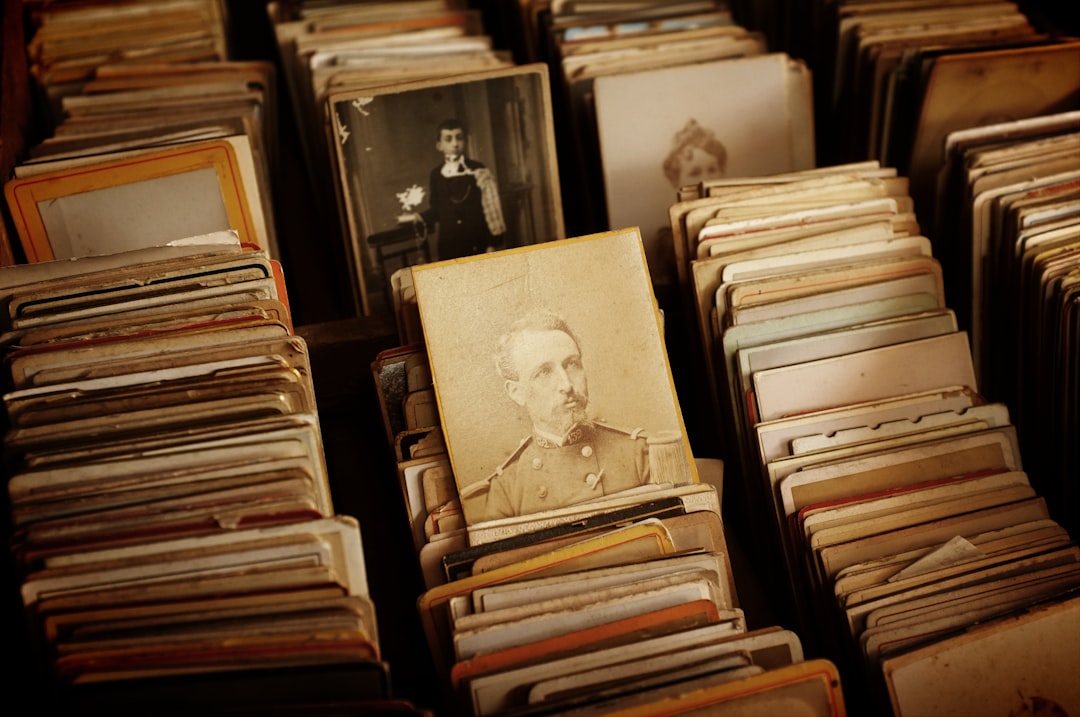If you were captivated by the intense political struggles and brutal conflicts depicted in ‘Stockholm Bloodbath’, you’re likely craving more riveting historical dramas that transport you to different eras and cultures. From silent film classics to modern epics, these 10 films and series offer a wealth of gripping stories, complex characters, and rich historical detail.
Buy Airtel Broadband with exciting benefits!
Silent Era Masterpiece: ‘The Passion of Joan of Arc’
Carl Dreyer’s 1928 silent film ‘The Passion of Joan of Arc’ is a landmark of early cinema, known for its haunting close-ups and raw emotional power. Focusing on the trial of Joan of Arc, the film showcases intense political and religious conflicts, echoing the themes of ‘Stockholm Bloodbath’.
-
Lead actress Renée Falconetti delivers a performance of astonishing depth and authenticity, conveying Joan’s anguish and conviction through facial expressions alone.
-
Dreyer’s innovative use of extreme close-ups and unconventional camera angles creates a sense of psychological intimacy and heightens the drama.
-
The film’s spare, minimalist sets and striking lighting design contribute to its timeless, iconic look.
Epic Rebellion in ‘Spartacus’
Stanley Kubrick’s 1960 epic ‘Spartacus chronicles the famous slave revolt against the Roman Empire, led by the titular gladiator. With its grand battle scenes and exploration of power, oppression, and the struggle for freedom, ‘Spartacus’ resonates with fans of ‘Stockholm Bloodbath’.
-
Kirk Douglas delivers a magnetic performance as Spartacus, embodying the character’s charisma, determination, and moral complexity.
-
The film’s sweeping cinematography and lavish production design bring the ancient world to vivid life, immersing viewers in the grandeur and brutality of the Roman Empire.
-
‘Spartacus’ was groundbreaking for its time, pushing boundaries with its depictions of violence and sensuality, and its veiled commentary on contemporary politics.
Sweeping Saga: ‘Lawrence of Arabia’
David Lean’s 1962 masterpiece ‘Lawrence of Arabia’ is an epic in every sense, chronicling the larger-than-life exploits of British officer T.E. Lawrence during World War I. Its grand scale, complex political machinations, and clashes of cultures make it a must-watch for ‘Stockholm Bloodbath’ fans.
-
Peter O’Toole’s iconic performance as Lawrence captures the character’s charisma, ambition, and inner turmoil, anchoring the film’s sprawling narrative.
-
The film’s stunning cinematography, shot in widescreen Technicolor, captures the majestic beauty and harsh realities of the Arabian desert, creating an immersive sense of place.
-
‘Lawrence of Arabia’ delves deep into the complexities of colonialism, tribal politics, and the clash of empires, offering rich historical insight and nuance.
Madness and Ambition in ‘Aguirre, the Wrath of God’
Werner Herzog’s 1972 film ‘Aguirre, the Wrath of God’ is a haunting, hallucinatory journey into the heart of darkness, following a doomed expedition in search of the mythical city of El Dorado. Its themes of power, obsession, and the thin line between ambition and madness parallel those of ‘Stockholm Bloodbath’.
-
Klaus Kinski delivers a mesmerizing performance as the titular Aguirre, a conquistador consumed by his delusions of grandeur and descent into madness.
-
Herzog’s use of real locations in the Amazon rainforest and his uncompromising approach to filmmaking create a sense of raw, primal intensity that draws viewers into Aguirre’s fevered mind.
-
The film’s surreal, dreamlike imagery and Popol Vuh’s haunting score contribute to its unsettling, otherworldly atmosphere.
Viking Age Epics in ‘The Last Kingdom’
The BBC/Netflix series ‘The Last Kingdom’ (2015-2022) brings the Viking Age to vivid life, chronicling the struggles for power and identity in 9th-century England. With its clashing cultures, shifting alliances, and brutal battles, the series offers a gripping historical saga in the vein of ‘Stockholm Bloodbath’.
-
Alexander Dreymon anchors the series as Uhtred, a Saxon raised by Vikings, whose divided loyalties and quest for identity drive much of the drama.
-
The show’s attention to historical detail, from costumes and weaponry to social customs and politics, immerses viewers in the gritty realities of the era.
-
‘The Last Kingdom’ balances epic battles and political intrigue with intimate character drama, creating a rich, multi-layered narrative tapestry.
Best Period Drama Film: ‘The Other Boleyn Girl’
Set in the court of King Henry VIII, ‘The Other Boleyn Girl’ (2008) explores the rivalry between Anne Boleyn and her sister Mary as they vie for the king’s affections. Like ‘Stockholm Bloodbath’, the film delves into the personal sacrifices and political machinations behind pivotal historical events.
-
Natalie Portman and Scarlett Johansson deliver nuanced performances as the Boleyn sisters, capturing their complex relationship and the societal pressures they face.
-
The film’s sumptuous costumes and production design bring the opulence and intrigue of the Tudor court to vivid life.
-
While taking some liberties with historical accuracy, ‘The Other Boleyn Girl’ offers a compelling exploration of power, ambition, and the precarious position of women in a patriarchal society.
Leadership Challenges in ‘The King’s Speech’
Set in the years leading up to World War II, ‘The King’s Speech’ (2010) chronicles King George VI’s struggle to overcome his stammer and become the leader his nation needs in a time of crisis. Though more modern in setting, the film’s themes of leadership, duty, and personal struggle resonate with those of ‘Stockholm Bloodbath’.
-
Colin Firth’s Oscar-winning performance as King George VI captures the monarch’s vulnerability, determination, and ultimate triumph over adversity.
-
The film’s attention to historical detail, from the re-creation of 1930s London to the incorporation of actual radio broadcasts, grounds the story in authenticity.
-
‘The King’s Speech’ offers a moving, intimate portrait of leadership, showcasing the human struggles behind the public façade of royalty.
Whether you’re drawn to silent film masterpieces, epic tales of rebellion, or intimate portraits of power and ambition, these historical dramas offer a wealth of gripping stories and rich historical insight. So why not immerse yourself in a different era and culture tonight?
|
Did you know? – ‘The Passion of Joan of Arc’ was thought lost for decades until a pristine print was discovered in a Norwegian mental institution in 1981. – ‘Lawrence of Arabia’ originally ran over 4 hours and was drastically cut down for its initial release. Its full “director’s cut” was only restored in 1988. – The budget for ‘Spartacus’ was a then-massive $12 million, making it one of the most expensive films ever at the time. – For ‘The Last Kingdom’, language coaches were brought in to help the actors deliver period-appropriate dialogue in Old English and Old Norse. |
With Airtel Broadband, you can enjoy seamless streaming of these historical drama movies and series, thanks to high-speed internet and unlimited data. Plus, with Airtel’s Xstream Box and bundled subscriptions to top OTT platforms, you’ll have access to a vast library of historical dramas from around the world, all at your fingertips.
FAQs
1. What makes a film or series qualify as a historical drama?
Historical dramas are set in a specific historical era and often depict real events, figures, or social/political issues of that period, even if fictionalized.
2. Are all historical dramas entirely accurate to real-life events?
Not always. While historical dramas are often well-researched, many take creative liberties with characters, events, or timelines for narrative purposes. It’s best to view them as dramatizations rather than strict documentaries.
3. What are some common themes explored in historical dramas?
Common themes include power struggles, political intrigue, social hierarchies, cultural clashes, war and conflict, and the impact of historical events on individual lives and relationships.
4. Are historical dramas only set in the distant past?
No, historical dramas can be set in any era, from ancient times to the more recent past (generally at least a few decades ago). Some may even span multiple periods.
5. What are some tips for getting the most out of watching historical dramas?
Do some research into the real-life historical context, but don’t get too caught up in accuracy nitpicking. Embrace the story and characters, and let yourself be immersed in a different time and place.


 Get App
Get App  Airtel Store
Airtel Store  Login
Login 


